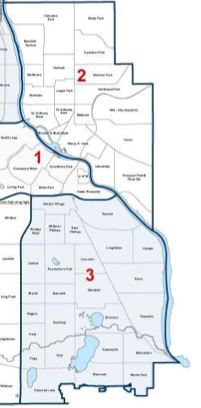Call to order at 6:40PM, 13 people attending.
The Bureau of Criminal Apprehension — the BCA — is being cited in news stories every day, but no one explains why they are tapped or even what the BCA is. This report offers the explanation.
Our speaker is Supt. Drew Evans who leads the Minnesota Bureau of Criminal Apprehension.
The Hennepin County Sheriff’s Office and the MPD were organized in 1852 and 1867 respectively. For over 50 years, they provided effective service to citizens, but as crime became more “mobile” and more complex, response had to evolve also. Law enforcement efforts led to the establishment of the Bureau of Criminal Apprehension in 1927. The BCA was created under the MN Attorney General’s Office, to “assist Minnesota peace officers in solving local crimes and apprehending criminals.” BCA agents were authorized to work across city and county lines — something local officials couldn’t do.
The BCA continued to grow and evolve. In 1935, it added the Division of Statistics. New agents were trained to earn full police power; having those highly trained officers made it possible to establish field offices across the state. In 1947, the BCA added a Forensic Science Lab, then limited to chemical testing and microscopic analysis. That first lab was staffed by one scientist and occupied a 350 sq. ft. space.
In 1969, several agencies including the BCA became the Minnesota Dept. of Public Safety. That first 1-person Forensic Lab had evolved into one of the first DNA labs in the United States. It was the first U.S. lab to identify a suspect based solely on DNA. When a larger HQ was built in 2003, the Forensic Labs were given almost half the space in the 226,000 sq.ft. facility.
The number of trained officers has also grown (over 630 as of this report), which enables the BCA to have a field office in each of 12 MN divisions.
The BCA is chartered by Minnesota statute 299C [https://www.revisor.mn.gov/statutes/cite/299C] which details the Bureau’s scope, powers, and responsibilities.
The BCA has four Divisions: Investigations, Forensic Science, MN Justice Information, and Professional Services. They share strategic priorities, including driving criminal justice data management, designing effective development options for Minnesota’s criminal justice professionals, delivering quality forensic science services, targeting violent criminals, organized crime, child exploitation, and tech-crime, and creating a work culture that values,supports, develops, attracts and retains BCA employees.
INVESTIGATIONS
This unit works on Predatory Crimes, Technical Services and Financial Crimes, and Criminal Information Operations. Regional offices in St. Paul and Bemidji cover local Violent Crime and Narcotics Investigations. Task Forces coordinate with Federal Task Forces including Drug Enforcement Agencies, the FBI Safe Streets, Safe Trails (Northern Minnesota) US Marshals and JTTF.
Predatory crimes include Internet Crimes against Children, Predatory Offender Investigations, Predatory Offender Registration, and Human Trafficking.
Technical Services and Financial Crimes include the Financial Crimes Task Force, and Technical Services unit, (which investigates:Pen Registers, Conducts wiretaps, Installs covert cameras, conducts Electronic surveillance, Cellular tracking, Crime scene response.
They also provide about 250 Crime Alerts each month and authorize “MN Duty Officers” — a single “point of contact” for law enforcement agencies.
Criminal Information and Operations include the Minnesota Fusion Center, the BCA operations center the BCA Duty Officer, Reactive Criminal intelligence analysts, MN Missing Persons clearinghouse, the MN AMBER alert program, the MN Crime Alert Program, the MN Blue Alert Program
The BCA Investigations Fusion Center was moved to the BCA in 2013 It collects, analyzes and disseminates information of data on organized criminals, terrorists and all-hazardous activity in MN, it is the state-based point of contact to coordinate information sharing between federal, state, and local agencies (https://mn.gov/fusioncenter/register/) It houses the Secure communications room for Homeland Security.
FORENSIC SCIENCE SERVICES DIVISION
Forensics has three offices. The full service office in St. Paul offers Evidence intake / processing, biology /DNA, chemistry, latent prints, firearms and toolmarks, crime scene, digital and multimedia, trace, toxicology, the Calibration lab.
Facilities in Bemidji and St. Cloud offer only some of these services, but that will be expanding as staff expands.
Additional Forensic services include the MN Breath testing program, Expert court testimony, Stakeholder training,Technical guidance, Research, development and validation of up to date technology, Quality assurance requirements, and Service on National Forensic Science Committees and Boards
Since 1994, the BCA has earned accreditation in 11 disciplines including DNA testing, digital preservation and authentication, many areas of firearms & toolmark analysis, footwear and tire analysis, seized drugs analysis, toxicology
MN JUSTICE INFORMATION SERVICES
This is the state’s gateway to criminal justice information. Over 30 computer applications and services provide data to criminal justice agencies in Minnesota. Its goal is to deliver accurate, timely, and complete information to criminal justice partners and citizens for better decisions-making.
Data shared includes Criminal history, Predatory Offenders, Law enforcement incidents, Driver & vehicle data, Fingerprints, Wanted/missing persons, Orders for protection, Prison, jail and detention orders, Domestic abuse no contact orders, Arrest and booking photos, Stolen property, charging data (complaints, citations, incidents), Other states’ criminal history,driver & vehicle, Probation & supervision.
Other services include criminal history background checks, fingerprinting, information security, Education and marketing (product mgmt), statewide crime statistics, FBI-required audits.
PROFESSIONAL SERVICES
Oversees the BCA’s budget and fiscal responsibility and manages other services for all divisions such as grant and contracts managements, HR assistance, purchasing, accounts, special expenses, mailroom operations.
BCA Training
the BCA is required to provide statewide training (M.S. 626.848). It offers classroom and online training in police practices and investigative techniques, management and leadership, forensic science processes, and BCA systems to 9000+ students /year.
Additionally, the BCA includes a Legal Team to provide analysis on litigation, legislation, data practices & policies. They have a Data Practices team, offer Law Enforcement Accreditation, a Communications team, and provide help with Strategic Planning and Criminal Justice Information & BCA advisory group.


